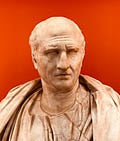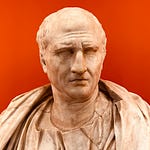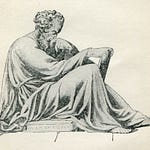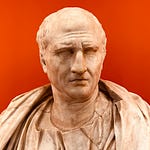“The first thing, then, is to inquire what death, which seems to be so well understood, really is.
For some imagine death to be the departure of the soul from the body.
Others think that there is no such departure, but that soul and body perish together, and that the soul is extinguished with the body. …
There is great dispute even what the soul is, where it is, and whence it is derived. …
Empedocles imagines the blood, which is suffused over the heart, to be the soul; to others, a certain part of the brain seems to be the throne of the soul. …
Dicaearchus, in that discourse of some learned disputants held at Corinth … asserts that there is in fact no such thing at all as a soul, but that it is a name without a meaning; and that it is idle to use the expression ‘animated beings.’
That neither men nor beasts have minds or souls, but that all that power by which we act or perceive is equally infused into every living creature, and is inseparable from the body, for if it were not, it would be nothing.
Nor is there anything whatever really existing except body, which is a single and simple thing, so fashioned as to live and have its sensations in consequence of the regulations of nature.” (Cicero, Tusculan Disputations, I.9-10)














Cicero on the nature of the soul